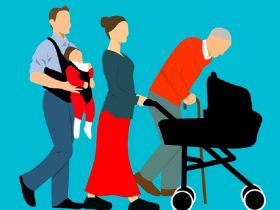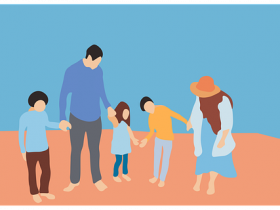No matter which community you find yourself in the world, you will meet those people in the community whose very job is to devote their time to improving the lives of those who are sick. “Sick” can be meant physically, but it can also be emotionally as well. Almost universally, these healers- who we often refer to as doctors- are highly regarded by the community.
Why is this so? Why the high regard?
One theory may be that most of our important milestones in life are in the presence of a doctor- for example, our birth, giving birth to a child, and often, our deaths.
Whatever the reason for this reverence, there is no doubt that doctors do play an important role in the community.
Let’s take a closer look and examine the importance of a doctor in each community to which they belong.
They Help Extend life
A doctor is ‘a person skilled in the healing arts,’ or ‘a person who restores, repairs, or fine-tunes things’.
As a part of their job, doctors work to heal or restore and repair human bodies.
Once a patient comes to a doctor, it’s the role of a doctor in a hospital to communicate with the patient and find out what is ailing them. The doctor will then decide on the best course of treatment that will hopefully resolve the patient’s issue.
The ability to improve or halt medical illnesses that may indirectly or directly lead to morbidity means that doctors and their prescribed treatments can help extend human life.
For example, let’s say a person went to the hospital with symptoms that led to a cancer diagnosis. Treatment for cancer, such as chemotherapy, can in many cases destroy it and thus extend the length of life for that individual.
Thanks to advances in medicine and better health care and hygiene, human life expectancy has steadily risen over the past century. The recent Covid-19 pandemic was a medical emergency that created a dramatic dip in life expectancy between 2020. Even with the slight dip of 1.8 years, the life expectancy for Americans was 77 years in 2020 compared to 53.2 years in 1920.
They Help Improve the Quality of Life

What does ‘quality of life’ mean? Quality of life refers to how well you are able to live your life unencumbered by illness and/or disabilities that may make life more challenging.
There are many, many chronic conditions and illnesses that can negatively affect your quality of life. Countless.
For example, if you have a degenerative muscular disease such as muscular dystrophy, you will find that over time you are able to do fewer and fewer things because of the fact that your muscles are essentially wasting away.
While there is no cure for muscular dystrophy, doctors are able to provide the patient with treatments, such as medications, physical and occupational therapies, and surgery that can slow the speed of degeneration.
For someone with muscular dystrophy, the help of a doctor can make all the difference when it comes to living a more enjoyable life.
They Prevent Illness
In the United States, your average person sees a doctor from the moment they draw their first breath, then, typically, they will continue to see a doctor at least every six months until they reach school age, when visits then come yearly.
Those first doctor’s visits are about addressing any issues that the baby’s parent(s) have encountered while caring for their newborn child, from feeding issues to sleeping issues, illness, and everything else in-between.
Not only do the doctors inquire about the babies, but now, more and more, doctors will inquire about the well-being of the child’s caretakers as well; particularly the mothers who bore the child and have to deal with their bodies’ fluctuating hormones as they readjust postpartum.
Why these frequent visits?
Well, like the saying goes, “an ounce of prevention is worth a pound of cure.” In other words, a more effective health strategy is heading off issues when they are “small” and more manageable versus spending tremendously more money and resources to halt a problem that has become bigger and harder to manage.
Going back to the previous example, infant and maternal mortality rates have declined substantially over the past one hundred years. Infant mortality rates, which include deaths from pre-term labor, illness, SIDS, etc., have declined on average 3% a year since 1917.
This is due in large part to the improvement in prenatal and postnatal care. Doctors can address issues before they arise or shortly afterward.
They Inform
Community outreach is an important component of the job for doctors. This doesn’t necessarily mean that doctors have to stand on every street corner talking to members of their community about their health.
Rather, it’s not unusual for special screenings to be made available at community centers or similarly accessible places. These could be screenings for breast cancer, diabetes, colon or prostate cancers. These screenings are a great opportunity to provide people information about their health when they may have not otherwise gotten it.
Health education seminars are another example of how doctors can strive to improve a community’s health statistics by making information readily available to community members.
Having pamphlets available at their offices, and/or being open to addressing any questions you may have during a doctor’s visit are other ways that doctors keep us informed about our health.
Most recently, the information that doctors were able to provide the public during the Covid-19 pandemic likely meant the prevention of thousands upon thousands of deaths. The importance of doctors during Covid-19 should not be underestimated.
There is a reason why “knowledge is power”. Information about our health can help us make more informed decisions that may prevent illness before it starts.
They give hope
It is inevitable that we’ll need a doctor at some point in our lives. For many, if not most of us, the fact that we have these healthcare professionals there to support us when we are at our most vulnerable is reason enough to hold them in high regard.
When we’re sick, it having someone there who can give us hope about our future can make all the difference in the world.









Leave a Reply
View Comments